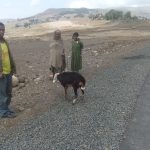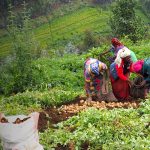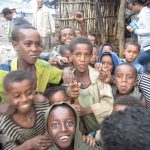Violent conflict and political instability are escalating worldwide, with Africa experiencing some of the most severe challenges. The region, home to 60% of the world’s poor (World Bank 2023), saw statebased armed conflict events nearly triple between 2007 and 2023 (Rustad 2024), while protests more than quadrupled from 2007 to 2019 (OECD 2021). Over this […]
Building drought resilience: How Ethiopia’s SPIR Program protects women and families (AMH SUB)
Climate change is accelerating drought shocks and deepening gender disparities. In Ethiopia, researchers from the CGIAR Initiative on Gender Equality (HER+) partnered with World Vision, CARE, and ORDA Ethiopia to assess whether SPIR, a social protection program with livelihood and nutrition components, helped poor rural women and their households cope with droughts. The study found […]
Food Security Simulator – Ethiopia
The Food Security Simulator Ethiopia (FSSE) is an innovative and easy-to-use, MS-Excel-based tool for assessing the potential short-term impacts of food price or household income shocks, along with changes in preferences, on food security and people’s diets. The Simulator is an ideal tool for first-cut forward-looking evaluations of direct, household-level outcomes of economic crises and […]
Securing food, building livelihoods? A 15-year appraisal of Ethiopia’s Productive Safety Net Programme
We assess the impact of a large-scale social protection intervention, Ethiopia’s Productive Safety Net Programme (PSNP), over a 15-year period. -We find that the PSNP had a positive impact on food security but inconsistent impacts on assets. There were positive impacts on fertilizer use, investments in terracing, and cereal yields but only when the program […]
Can social assistance reduce violent conflict and civil unrest? Evidence from a large-scale public works programme in Ethiopia
We assess how one of the largest public works programmes in the world—Ethiopia’s Productive Safety Net Programme (PSNP)—affected violent conflict and civil unrest. Using difference-in-differences methods and linking administrative and geocoded conflict event data, we find that the PSNP did not change the risk of violent events, but reduced the likelihood of civil unrest by […]
- « Previous Page
- 1
- …
- 22
- 23
- 24
- 25
- 26
- …
- 102
- Next Page »




